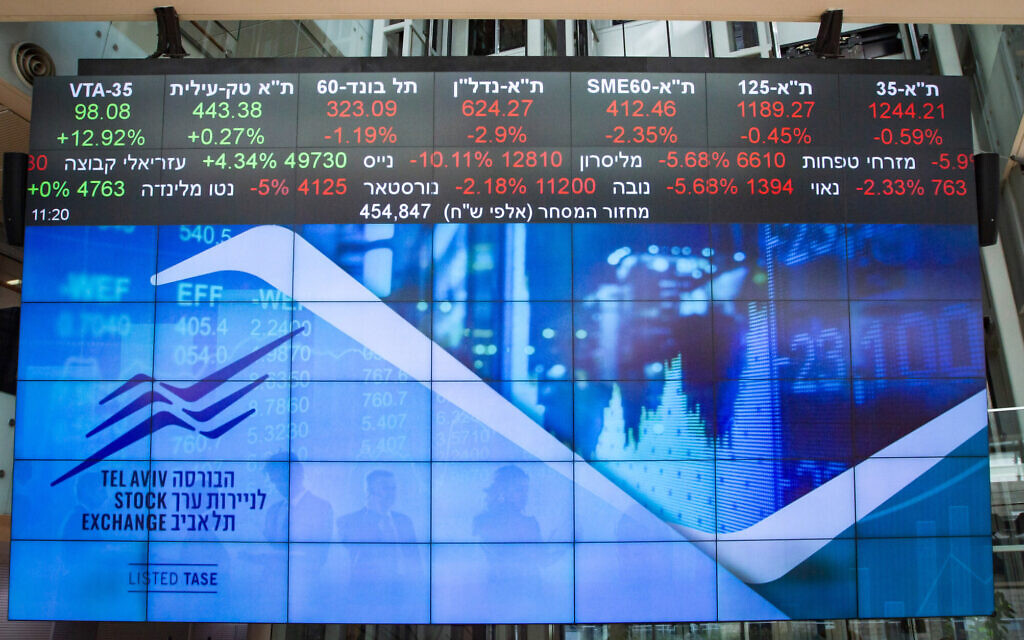The Operation Al-Aqsa storm has had a devastating impact on Israel’s economy, particularly in the tourism and production sectors. Lasting for over a month, this operation has resulted in unprecedented economic damage, according to experts within the country. The loss and economic stagnation currently being experienced by Israel are believed to be unparalleled in comparison to previous periods. In this article, we will explore the extent of the damage inflicted on Israel’s economy and delve into the factors contributing to this unprecedented crisis.
One of the most evident outcomes of the Operation Al-Aqsa storm for Israel is the significant economic damage it has caused. The Israeli regime is grappling with the consequences of this war and is deeply concerned about its impact on vital sectors of the economy. In this article, we will examine the economic repercussions of the Operation Al-Aqsa storm and the challenges Israel faces in mitigating its effects on key sectors.
Operation Al-Aqsa Storm: Mobilizing the Israeli Workforce; Impact on Economy.
The Israeli cabinet’s call for the mobilization of 350,000 reservists during the Gaza war has resulted in an 8% reduction in the Israeli workforce. A recent survey conducted by Israeli Central Bureau of Statistics reveals that nearly half of Israeli companies have experienced a significant decline in income during this period.

Among the hardest-hit sectors are construction and food services, with a staggering 70% decrease in their income since the start of the war. Small businesses suffered the most from the economic impact.

According to a survey conducted on Israeli companies’ earnings following the Operation Al-Aqsa storm, approximately 11 percent of the participating companies reported that 21 percent of their workforce had been called up for military service. The data further reveals that around 1.3 million workers were absent from work during the first week of the war, followed by 1.1 million workers in the second week, and approximately 770,000 workers in the third week of the war.
As per a research report published by the Bank of Israel, the Operation Al-Aqsa storm has resulted in the absence of numerous workers from their jobs, causing a significant economic impact. The report estimates that this absence is costing the Israeli economy approximately NIS 2. 3 billion ($600 million) per week, which accounts for around 6 percent of the weekly GDP.
Operation Al-Aqsa Strom and impact on Construction Sector

The construction sector, which heavily relies on Palestinian labor, has been particularly impacted due to restrictions on the entry of Palestinians from the occupied West Bank into Israel. This has further exacerbated the challenges faced by the sector.
Operation Al-Aqsa Storm: Israel’s Unprecedented Economic Recession
Simultaneously, Hebrew media sources reported a 6% decrease in the value of the Israeli currency, the shekel, over the initial three weeks of the war. Additionally, the Hebrew newspaper “Portz Port” released a report stating that the direct cost of the Gaza war for the Israeli economy during the same period was estimated at 11. 1 billion shekels.
The report highlighted the detrimental impact on Israel’s economic activities following the commencement of the Gaza war and the evacuation of settlements in the southern and northern regions. It emphasized that the war resulted in a decline in the value of the shekel, direct damage to factories and the foreign investment sector, as well as the cancellation of transactions, among other consequences.
However, this figure represents the economic damage incurred by Israel during the initial three weeks of the war, focusing solely on the direct impact. It does not encompass the indirect damage inflicted upon the production and import sectors, nor does it account for the employees who ceased working across various industries.
According to a report by The Globes newspaper, it is anticipated that tax revenue will decline by 50% this year. Furthermore, if the conflict in Gaza intensifies and expands, it is expected that the significant recession experienced in the Israeli real estate sector this year will worsen even further.
This media source highlights information from the Israel Tax Administration, indicating that there is an anticipated significant decrease in revenues from real estate tax. This decline in revenue is a contributing factor to the reluctance to invest in the Israeli real estate sector.
The Paralysis of Israel’s Tourism Sector after the Operation Al-Aqsa Storm
The Operation Al-Aqsa Storm has had a profound impact on various sectors of the Israeli economy, from tourism and natural resources to employment and budgetary planning. The long-term effects of these changes remain to be seen.
Airlines have canceled most flights to Israel, and tourists have called off trips. The ongoing conflict has had significant repercussions on air travel, leading to the suspension of flights and necessitating schedule changes. Major airlines such as United Airlines, Delta Air Lines, and American Airlines have made the decision to suspend all flights to Israel due to the escalating situation.

Additionally, according to the Hebrew newspaper Haaretz, the Gaza war is expected to inflict further damage on Israel’s economy. The tourism sector will stagnate even more, and economic activities in the southern region will come to a standstill. It is worth noting the substantial rise in military expenses, the increase in unemployment among workers, and the mobilization of a significant number of individuals into the army as reserve forces.
Prior to Operation Al-Aqsa Storm, the Israeli economy was facing instability caused by internal political conflicts following the establishment of Benjamin Netanyahu’s extremist cabinet. Furthermore, the approval of the judicial changes plan by the Netanyahu cabinet led to the departure of numerous companies and investors from Israel to America and Europe.
According to Israeli economic experts, the regime’s budget deficit for this year is projected to reach 1. 5% of GDP, equivalent to at least 27 billion shekels. This represents the largest financial loss for Israel since the October 1973 war.

These experts highlight that if the war continues and its scope expands, it will likely result in an escalation of the inflation rate and a near paralysis of production activities. This, in turn, will lead to a reduction in the supply of goods, negatively impacting Israel’s domestic industry. Additionally, potential damage to critical infrastructure, particularly in the natural gas sector, may result in higher electricity prices. All of these factors, combined with the adverse effects of military conflicts on the service sector, are expected to contribute to an overall increase in inflation.
The tourism sector in Israel, which holds significant importance in the country’s gross domestic product and provides employment opportunities for many Israelis, has been severely impacted by the Gaza war.
According to Israeli economic analysts, the belief among political and military leaders that the war will be prolonged indicates that the economic damages, particularly in the tourism sector, are expected to escalate significantly.
Israeli Stocks Experience Sharp Decline
International credit rating agencies have issued warnings of a possible downgrade for Israel, marking a first for the country. Since October 7, Israeli stocks have experienced a sharp decline, making them the worst performers globally. The Tel Aviv Stock Exchange has fallen by 16 percent, equivalent to a staggering $25 billion. JPMorgan Bank predicts that the Israeli economy may face a recession of 11% in the current quarter of this year.
Recent assessments indicate that 1. 5 percent of Israel’s economy is allocated towards the Gaza war. The Ministry of Finance in Israel has issued a warning, stating that if the conflict in Gaza persists, the country’s economy will face a severe recession in the coming months of this year and the next. The situation is expected to worsen if the war expands to multiple fronts.
Israel’s Ministry of Finance has expressed concerns that if the war persists for a year or expands beyond the Gaza Strip, there is a high likelihood of an economic recession in the upcoming quarter. Of particular concern is the potential impact on the labor market, as approximately 1. 8 million workers, accounting for 41% of the Israeli workforce, could face unemployment. Such a scenario would deliver a significant blow to the economy of the country.

Over a month has elapsed since the Israel Gaza war, and the significant economic losses incurred by Israel in this war are becoming increasingly evident. Recent reports from Israeli sources, anticipating the continuation of the conflict with Gaza, highlight the substantial and long-lasting repercussions of Operation Al-Aqsa storm on the country’s economy. It has been estimated that this direct and indirect war will result in approximately $38 billion worth of damages for Israel.
 Arab24 اخر اخبار الوطن العربي
Arab24 اخر اخبار الوطن العربي




